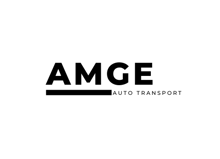Freight Fraud: The Most Common Scams in the Freight Industry
This article focuses on the common scams that occur in the freight and transportation industries, such as cargo theft, false invoicing, and broker scams. The article provides tips on how to avoid falling victim to these scams and protect your business from fraudulent activities. Whether you are a shipper, carrier, or freight broker, this article provides valuable information on staying safe and secure in the freight industry.
Jerrod Anthraper
4/23/20232 min read


Common Freight Fraud
The freight and transportation industries are vital for the global economy, allowing goods to be transported across vast distances in a timely and cost-effective manner. However, with the increasing reliance on truck transportation, there has been a rise in the number of scams that target unsuspecting shippers and carriers. These are some of the most common scams in the freight and transportation industries and provide tips on how to avoid them.
1. Cargo Theft: Cargo theft is a significant problem in the freight and transportation industries, with thieves stealing high-value items such as electronics, pharmaceuticals, and jewelry. To prevent cargo theft, it's important to conduct background checks on carriers and brokers, use secure locks and seals, and install tracking devices on shipments.
2. Identity Theft: In this scam, fraudsters use false identities to impersonate legitimate freight forwarders, brokers, or carriers. To avoid falling victim to identity theft, it's important to verify the identity of any individuals or companies you work with, and to conduct due diligence before making any payments.
3. False Invoicing: False invoicing occurs when a carrier bills a shipper for a higher weight or volume than what was actually transported. To prevent false invoicing, it's important to use reputable carriers and to conduct regular audits of your shipping invoices.
4. Bait-and-Switch: This scam involves a carrier advertising a low shipping rate to attract customers, only to later increase the rate after the shipment has been picked up. To avoid falling victim to a bait-and-switch scam, it's important to get a written estimate from the carrier before agreeing to any shipments.
5. Non-Payment Scams: In a non-payment scam, a carrier picks up a shipment but never delivers it, or a shipper fails to pay for a shipment that has been delivered. To prevent non-payment scams, it's important to use reputable carriers and to conduct due diligence before doing business with a new shipper or carrier.
6. Overcharge Scams: Overcharge scams occur when a carrier overcharges a shipper for a shipment. To prevent overcharge scams, it's important to carefully review shipping invoices and to dispute any charges that are incorrect.
7. Broker Scams: Broker scams occur when a freight broker takes payment for a shipment, but fails to pay the carrier or the shipper for their services. To prevent broker scams, it's important to work with reputable brokers and to conduct due diligence before doing business with a new broker.
In conclusion, the freight and transportation industries are vital for the global economy, but they are also vulnerable to scams. Working with a Freight Brokerage like AMG Endeavors can be essential to putting up a shield between your freight and potential fraud.


AMG ENDEAVORS TRANSPORTATION SERVICES
info@amgendeavors.com
800-494-5059
